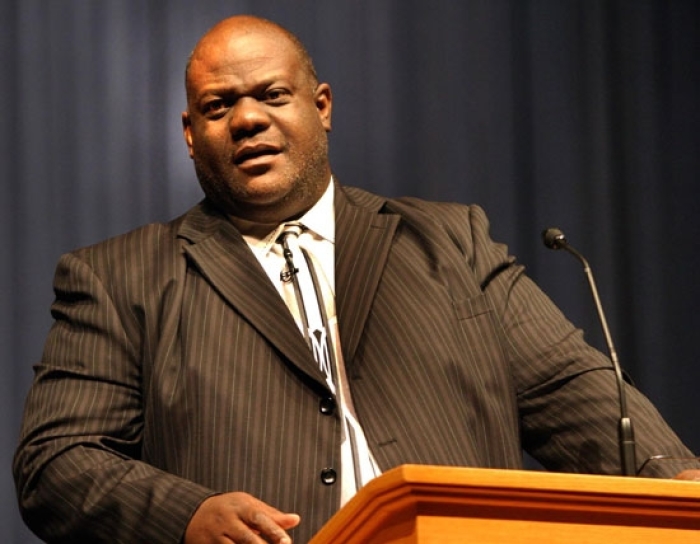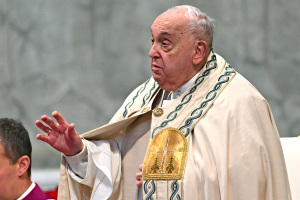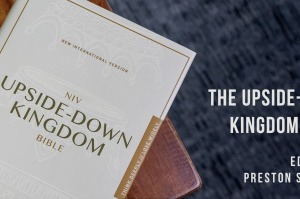Pastor Dwight McKissic says he’s leaving SBTC, possibly SBC over critical race theory dispute

When leaders in the Southern Baptists of Texas Convention rebuked him for supporting missionaries praying and praising in tongues in 2006, prominent Southern Baptist Pastor Dwight McKissic said he almost quit.
After the recent adoption by SBTC leaders of a “strongly worded, anti-CRT policy that denounces all aspects of critical race theory” last November, McKissic declared in a statement Friday that he is now ending his relationshipwith the SBTC 15 years later.
And if leaders of the Southern Baptist Convention rescind Resolution 9 on critical race theory that messengers passed in 2019, McKissic said he's ready to cut ties with them too.
“I remained a member from then until today, simply to not break fellowship over a tertiary issue. I DECIDED TO STAY ON THE BUS FROM 2006 UNTIL JANUARY 2021. But, today, I have decided it is time to ‘get off the bus.’ I no longer want to ride, and I certainly do not want to drive!” said McKissic, who founded and currently leads Cornerstone Baptist Church in Arlington, Texas.
The “get off the bus” phrase comes from a statement McKissic said the recently retired SBTC Executive Director Jim Richards made in 2006 when he spearheaded a policy preventing missionaries from praying and praising in tongues.
“‘If you have a private prayer language, you may ride on the bus at SBTC, but you will not be able to drive the bus,’” McKissic recalled Richards saying. “I found that statement incredibly offensive as an African American and as one who has been spiritually gifted to pray, praise, intercede and give thanks in tongues, under the inspiration and influence of the Holy Spirit, as is taught in I Corinthians 14.”
The policy was reversed in 2015, under David Platt, then president of the IMB.
McKissic’s announcement comes amid an ongoing exodus of prominent black SBC pastors, such as Ralph West and Charlie Dates, over a decision by the denomination’s Council of Seminary Presidents to denounce critical race theory and intersectionality as incompatible with their beliefs at their 2020 annual session.
The Council of Seminary Presidents, which is comprised of six seminaries, voted to reject CRT as incompatible with their faith while condemning “racism in any form.”
Critical race theory, as explained by Purdue University, is a theoretical and interpretive mode that examines the appearance of race and racism across dominant cultural modes of expression. Through this framework, scholars seek to understand how victims of systemic racism are affected by cultural perceptions of race and how they are able to represent themselves to counter prejudice. Scholarship on the theory traces racism in America through the legacy of slavery, the civil rights movement and recent events. Intersectionality is the study of how different personal characteristics overlap and inform one’s experience.
“The SBC is openly rejecting the collective wisdom of men like Fred Luter, Tony Evans, Marshal Ausberry, The National African American Fellowship of the SBC, hundreds of African American pastors, and her own African American professors by dismissing our claims that there are beneficial aspects to CRT,” McKissic said. “For these reasons, we are pulling out of SBTC; and if the CSP/SBC policy is ratified in June, we are discontinuing our affiliation with the SBC also. We are ‘getting off the bus’!”
Danny Akin of Southeastern Baptist Theological Seminary, Jason K. Allen of Midwestern Baptist Theological Seminary, Jamie Dew of New Orleans Baptist Theological Seminary, Adam W. Greenway of Southwestern Baptist Theological Seminary, Jeff Iorg of Gateway Theological Seminary, and Albert Mohler of Southern Baptist Theological Seminary are all members of the council.
Last month, Greenway defended the group’s statement on critical race theory and intersectionality and dismissed much of the criticism around it as emotional misunderstandings.
“I want to make this point as charitably but honestly as I can: misconstruing the CSP statement’s rejection of CRT/I as being synonymous with or code for the SBC seminary presidents denying systemic racism is bearing false witness,” Greenway said. “Furthermore, when feelings become all-consuming and paramount in determining courses of action irrespective of the facts contained in plain language, we commit the fallacy of eisegesis, or reading into texts meanings we feel or interpretations we want to impose.”
McKissic argued, however, that the dispute with the SBC over the policy isn’t just about feelings.
“If this CSP statement is adopted in the June 2021 SBC Annual Session, in any form or fashion, thereafter when one addresses the subject of CRT or ‘race’ from a seminary class, local church pulpit, or Sunday School class, ‘it could be interpreted’ by the SBC/CSP policy as violating the SBC/CSP statement/policy on CRT, which could make any professor, pastor, preacher, or Sunday School teacher that is judged by this SBC/CSP policy, ‘incompatible with Baptist Faith and Message (BFM),” he argued. “This could be used as grounds to dis-fellowship that church from the SBC or dismiss professors from their teaching assignments.”
He further noted that ratifying the policy would be giving too much power to the seminary presidents.
“I am not willing to concede that type of power to the SBC/CSP based on an academic policy that originated with six Anglo seminary presidents,” he said. “I am not willing to allow them to dictate what the belief systems, definitions and authoritative binding, academic and ecclesiastical decisions regarding how race is to be communicated in the local church or be subject to SBC interrogations and investigations for having spoken outside of the CSP-SBC CRT policy.
“We are not willing to sign-off on SBC seminaries and affiliated entities to be able to indoctrinate African American congregations and seminary students regarding CRT. Why? (A) Because this policy was developed without consulting with at least one African American in its origination; and (B) this policy fails to acknowledge that there are beneficial aspects to CRT. To affirm this policy is to affirm a dishonest approach to CRT,” he said.





























